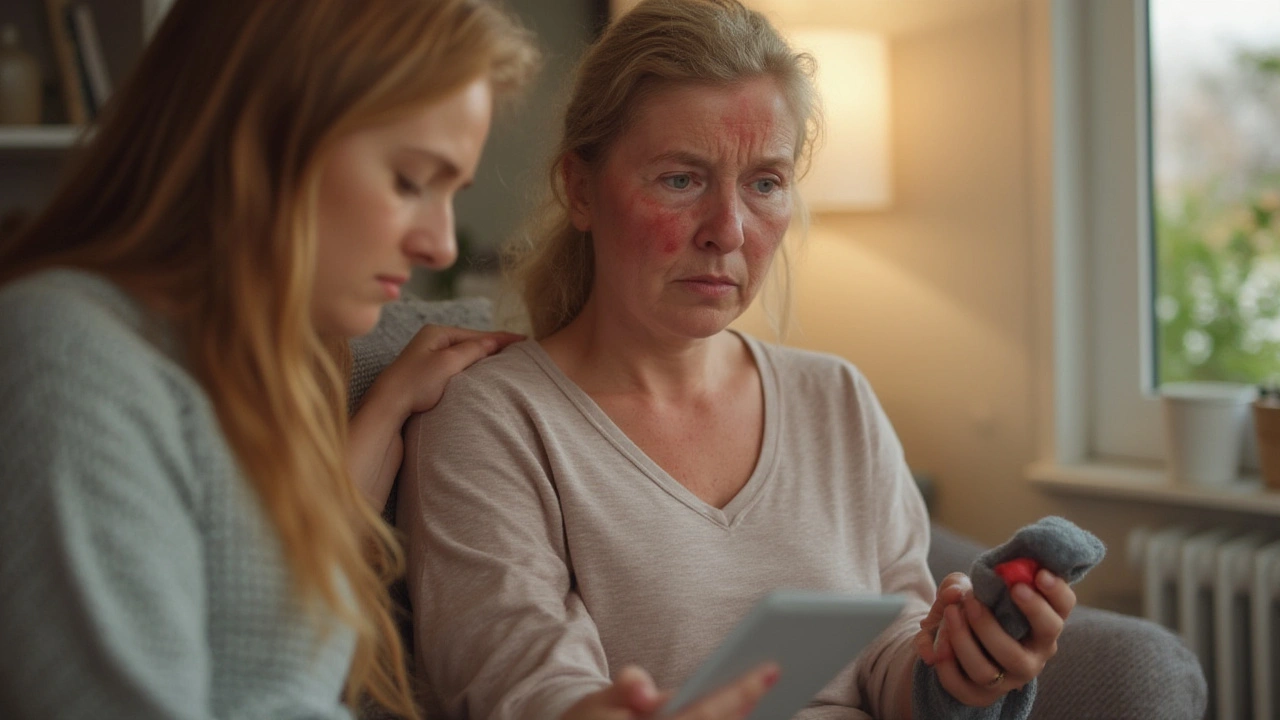Severe Sunburn: Fast Relief, Real Risks, and What to Do Next
Stinging, peeling skin after a day in the sun? Severe sunburn is more than a bad look—it's your skin’s way of saying something’s really wrong. If you’re dealing with deep redness, swelling, blistering, or feeling sick, this isn’t your average sunburn. Some people even get chills, headaches, or nausea from a burn this bad. Not fun.
First things first—cool down. Head indoors and out of direct sunlight right away. Cool (not icy) showers help a lot. Drape a damp cloth over scalded skin for extra relief. Skip the fancy creams with heavy fragrances or alcohol—they’ll just make the burn angrier. Go for plain aloe vera or a gentle, fragrance-free moisturizer. Hydration is huge, too. Sunburn draws fluid away from the rest of your body, so drink extra water for the next few days even if you don’t feel thirsty.
Notice big blisters? Don’t pop them. Blisters mean deep skin damage, and popping them on your own is an easy way to invite infection. If they break on their own, gently clean the area with mild soap and water, pat dry, and use a clean bandage. But if you’re seeing large blisters, the burn covers a lot of skin, or you start feeling feverish or faint, get real medical help—fast. Severe burns sometimes land people in urgent care.
Sunscreen isn’t just summer hype. People with sensitive skin or conditions like rosacea need extra careful sun protection. Some sunburns can even kick off a nasty flare-up, not just redness. Mineral sunscreens (think zinc oxide or titanium dioxide) are gentler for easily irritated skin—that’s not just a marketing line, it’s dermatologist advice. If your skin is already mad, skip perfumed lotions and lean into basic, cooling ingredients. Oatmeal baths are an old-school trick that dermatologists stand by. Just make sure the water isn’t piping hot.
Severe sunburn doesn’t just go away overnight. Peeling is common a few days in, and it usually comes with dry, itchy skin. Resist the urge to pick or scrub. Instead, reapply moisturizer several times a day and wear loose, soft clothes. Itching like crazy? Over-the-counter hydrocortisone cream or oral antihistamines might help, but always check with a pharmacist first if you aren’t sure. Some painkillers like ibuprofen or aspirin can cut down swelling and make things bearable while you heal.
Some folks are more prone to severe sunburn no matter how careful they are—very fair skin, certain meds, or autoimmune skin issues like lupus can put you at extra risk. If sunburns hit you hard often, it’s worth talking to a dermatologist or doctor. They can help with sun-protection strategies that go beyond a bottle of SPF.
Quick relief, smart aftercare, and a little expert advice can make all the difference. Severe sunburn might be common, but it’s nothing to mess around with.
Treatment Protocols for Severe Sunburn in Rosacea Patients: A Real-World Case Study
See how severe sunburn was managed in a real-life patient with rosacea. Read expert-backed advice, practical care tips, and evidence-based treatment strategies.
Read more
